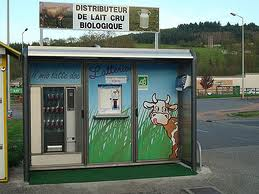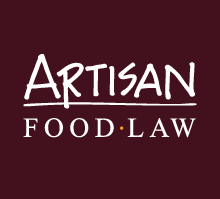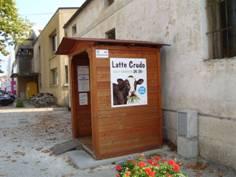The consumer's right to choose raw milk is to be reviewed
The Food Standards Agency (FSA) is to consider reviewing the arrangements governing the sale of raw drinking milk and cream when it next meets on 20 March. A report to the FSA Board prepared by the Agency’s Director of Food Safety sets out the current position and recommends the FSA fully assess the possible options for managing food safety risks:
“… the policy review should include consideration of the current statutory controls to ensure they provide a clear, consistent and appropriate regulatory framework to control the public health risk, particularly in the light of developments in the marketing of these products”
The report is concerned solely with raw milk and cream and does not extend to products made from raw milk. The move follows the pioneering work of Sussex farmer Hook & Son reported in The Guardian on 15 December 2011. Hook & Son have made raw milk available by means of a vending machine located at Selfridges’ department store in London but owned and operated by Hook & Son, and online from their website using overnight courier delivery.

The sale and distribution of raw milk is governed by domestic legislation. There are no special provisions under EU law and each member state makes its own arrangements. In England (similar legislation exists in Wales and Northern Ireland) the sale of raw drinking milk is subject to the Food Hygiene (England) Regulations 2006 . In Scotland the sale of raw drinking milk and cream has been prohibited since 1983. The 2006 Regulations permit a farmer to sell raw milk “at or from the farm premises” to the final consumer. The FSA have in the past accepted the sale of raw milk at farmers’ markets and appear now, given the absence of any attempt to prosecute Hook & Son despite early indications to the contrary, to concede that milk vending machines, operated in the way undertaken at Selfridges, and overnight courier delivery direct from farm to consumer fall within the current definition of permitted sales. While the Director’s report states that “vending machines cannot be placed in retail outlets” it provides no legal basis for this assertion. The last public consultation about controls over raw drinking milk was in 1997 when 99% of respondents said drinking raw milk should be a matter of consumer choice. Since then the number of registered raw milk producers has fallen from around 570 to around 100 in 2010. Between 1992 and 2002 illness linked to drinking raw milk represented less than 1% of reported outbreaks of foodborne illness. Since 2002 there have been no reported outbreaks associated with drinking raw milk. The reduction in the number of producers may be a factor but no account has been taken of the increased popularity and availability of raw milk at farmers’ markets. The main proposals under consideration are:
- A prohibition on the sale of raw drinking milk, all milk and cream to be pasteurised.
- The continuation of sale with appropriate (but for now unspecified) consumer information, controls and enforcement action.
- Consideration of whether new routes, including vending machines and internet sales, for the sale of raw milk require additional measures.
- The extension of the legislation to cover other species, including raw milk from goats and sheep which are not presently covered.
The FSA Board will doubtless agree to the policy review and public consultation. Clarity and consistency in the law are clearly desirable, but should not be used as a vehicle for stricter control and regulation or, worse still, the prohibition of a basic food. You can watch the FSA Board discuss raw milk live online next Tuesday, 20 March shortly after 2.00pm or download the podast later to listen at your leisure. Artisan Food Law will be following this story with interest, so sign up here or on Twitter to stay up to date.





